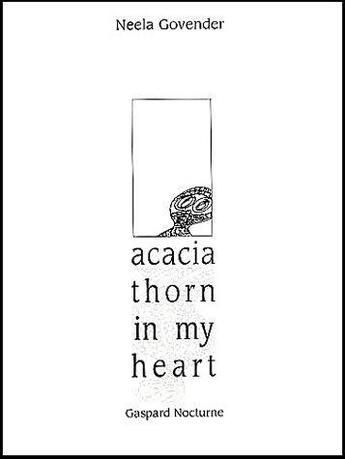-
Nombre de pages : (-)
-
Collection :
(-)
-
Genre :
(-)
-
Thème :
Non attribué
-
Prix littéraire(s) :
(-)
Résumé:
I started writing "Acacia thorn in my heart" after reading the book of a white South African woman about her childhood in the same region as mine but relating a completely different experience.
She had maids, her father drove her to school and she played with real toys. I lived in the heart of... Voir plus
I started writing "Acacia thorn in my heart" after reading the book of a white South African woman about her childhood in the same region as mine but relating a completely different experience.
She had maids, her father drove her to school and she played with real toys. I lived in the heart of the country, away from everything and had to walk five miles to go to school. I was born in Natal. My father rented a plot of land from a white owner to do market gardening. Although Indian families tended not to educate daughters, our parents decided that education was a priority for us. Despite financial difficulties, they were able to send us to school.
We had to get up at five o'clock in order to catch the school train. In winter, as we were scantily clad, we shivered all the way to the station.
Donner votre avis















